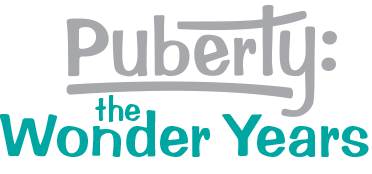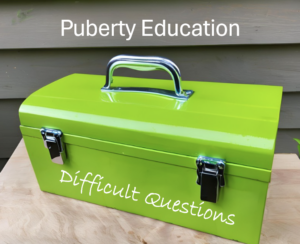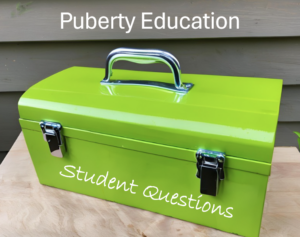Sexual Harassment & #MeToo
 Sexual harassment has certainly been the topic on everyone’s lips over the last few weeks. Just when we expect the media furor to die down, a new incident emerges and another powerful public figure is accused. Many of the people who report sexual harassment indicate that it began during adolescence. Sadly, this is a time when many young people have not yet developed the skills they need to report it and to stand up to their harasser. Education is key.
Sexual harassment has certainly been the topic on everyone’s lips over the last few weeks. Just when we expect the media furor to die down, a new incident emerges and another powerful public figure is accused. Many of the people who report sexual harassment indicate that it began during adolescence. Sadly, this is a time when many young people have not yet developed the skills they need to report it and to stand up to their harasser. Education is key.
How can we approach this topic with our young people? Whether a parent, grandparent or educator, we can teach our young people about power, abuse, and body autonomy. Please read this transcript or listen to the podcast to learn how to have these conversations.
iHeartRadio Interview Transcript…
with Phil Tower and Wendy Sellers About #MeToo and Sexual Harassment
Phil Tower: In this segment, we are pleased to talk with Wendy Sellers. Wendy is a retired registered nurse, but she is also a co-author of the Michigan Model for Health. As someone who saw a gap in health education in our country. She actually created a supplementary curriculum for teachers and parents, Puberty: The Wonder Years. It sounds like it should be a mini-series on T.V. But she is with us in studio. We have been inundated lately with first, the news of Harvey Weinstein, and multiple sexual harassments and really horrific incidents coming to light after probably being swept under the rug for at least 20 years and in some cases longer. Now we have several other public figures, the head of Amazon was fired after some pretty severe sexual harassment allegations and incidents were disclosed. And just recently Mark Halpern one of the senior reporters for ABC News, a well-respected analyst and author and contributor to numerous television networks, was just fired by ABC & CNN. He was a frequent contributor to several networks for essentially confessing to several inappropriate incidents that were sexual harassment. First of all, thank you, Wendy, for joining us.
Wendy: Well, you’re welcome. I’m pleased to be here Phil. Thank you.
Phil: Did you ever think this was going to come to light? It just literally kind of like the floodgates opened up in terms of this topic and dealing with sexual harassment.
Wendy: Well, I think it’s great that it’s come to light at this magnitude. It has come to light over and over through my lifetime, and so I’m hoping that we’ve reached a tipping point now and things will really change for the better.
Phil: You know, this is probably a loaded question, but I think about this as a man because most often men are the perpetrators of sexual harassment, but it does go both ways. Do you know, or do you ever think about why other than the fact that it just was kind of accepted as normal, why this has gone on so long unchecked?
Wendy: I think that sexual harassment is another symptom of people who have more power exerting that power and their privileges over people who don’t have as much power. So it’s in the same family as racism and other forms of prejudice. So it’s related to all of those other abuses of people.
Phil: And one of the things you and I were talking about before we turned on the microphones today: Is that this conversation with kids has to start early. I mean, your specialty is puberty, which is if you can survive puberty as a parent, let alone as a human being, you probably should be given a medal at some level. But really this is a conversation that relates to puberty, but it is just a general life thing that a lot of parents probably have a difficult time talking about. Right? Let alone, body changes in puberty.
Wendy: Yes, my specialty is puberty education, but really puberty is more than just the changes that occur physically.
Phil: Uh-huh
Wendy: There are a lot of emotional and social changes that occur during adolescence, and so parents can start right from birth, to help their children whether boys or girls, to understand the importance of maintaining body autonomy. That they have a right to their own bodies and that other people have a right to their bodies. And they can teach this very simply by helping their children understand that they have the right to say yes or no to kissing Grandma or Auntie good-bye or hello.
Phil: Uh-huh
Wendy: They have the right to say yes or no to sharing a toy. And that they need to ask others before they borrow possessions or get into their personal body space.
Phil: Right. As of last Tuesday, and I’m sure this number’s probably closer to twenty million, it was twelve million posts with a hashtag #MeToo on social media. Growing at a fast rate. Nearly, half the people in the U.S. are friends with someone who shared a #MeToo story. I wouldn’t be surprised if that went to 60%. Sadly, a lot of these Me Too stories point to incidents that you have mentioned happened in adolescence. So that’s why these conversations and that’s why this teaching from a parent’s standpoint in puberty and even pre-pubescent years is so critical, right?
Wendy: Absolutely, it was interesting to me to see the reactions of my men friends to the #MeToo and their shock and horror when their daughters posted a hashtag of MeToo. And then to point out that most of my female friends had jumped on, on twitter or on Facebook with a #MeToo, and it didn’t surprise me at all. Because it is so endemic among women and such a hidden issue for many men.
Phil: Yeah, well, and you really got to the crux of it. It is a power issue. Really at the rawest base, it is a power issue. And it was assumed to be appropriate because it just happened so frequently…so rampantly.
Wendy: Yes, and people who have power, can exert that power without consequence if you think about the Bill O’Reilly case for example. He had enough money to buy his way out of it. Then the publicity got the better of him. He got fired, and now he’s been rehired. So, really, there are very few consequences for men who are sexually harassing women, and there are many negative consequences for women who come forward and make the complaints, whether that’s through the legal system or in the workplace, because their reputation may be ruined. They be may be accused of being immoral, or in some way make it sound like this is their fault, rather than actually them being targeted by someone who has power or authority over them.
Phil: Or they may be quietly discriminated where they never get an advance in their career while other people are advanced because they reported it. And it could be that quiet discrimination where the boss says to the H.R. person, “never again.” And the H.R. person who in many cases may be of the same sex feels powerless as well, too.
Wendy: Yes, you’re right. There’s a lot of unspoken criticism and stigmatism against somebody who does speak up. They are viewed as a troublemaker, and they may be sidelined from any future opportunities. And maybe eliminated from their position, under different pretenses, when in actuality it’s because they are perceived as some kind of a whistleblower.
Phil: Wendy Sellers’ specialty is puberty and talking about not only sexual harassment but sex and the puberty years. Her website is Pubertycurriculum.com… Pubertycurriculum.com. Puberty: The Wonder Years is your book. I want to ask you, in terms of those conversations that parents should have, a lot of them feel uncomfortable with that. We’ve got a couple of minutes left. Do you have any, can you just give us some quick tips, maybe two or three quick tips to start those conversations?
Wendy: Sure. It starts when children are very young, just by using the proper terms for body parts. So that you get used to the vocabulary. Call those parts what they are, instead of the little cutesy euphemisms that many of us were taught when we were little. One of the challenges that parents have is, quite often they didn’t have a parent who was able to have meaningful conversations. So they didn’t have it modeled for them, so they are trying to learn a new skill. There are many great books and there are great videos that are available online that parents can go to, to use to learn how to have these conversations… or even to read a book and watch a video together and then talk to their child about it. And then also, schools that are doing a good job with this, for example, schools that are implementing my curriculum in 4th, 5th and 6th grade, can be a partner with parents and help parents initiate those conversations through parent-child homework assignments and other opportunities to learn how to do that.
Phil: Her curriculum by the way, if your school is not teaching that is called, Puberty: The Wonder Years. It’s specifically designed for 4th, 5th and 6th graders, and we know historically, a lot of kids for the last several decades have been entering puberty at an earlier onset, right?
Wendy: Yes, that’s true. And there are many theories about why that is happening at younger ages, but one of the main ones that is unearthed now is that as children have a higher body mass, they’re more obese, the fat tissue produces more hormones and that tends to cause earlier puberty. Also, there are many hormones in our meat products that are given to animals to bring them to market weight sooner. Then of course when we eat meat, those hormones are part of our bodies and so children are entering puberty younger. And even if they are not showing the physical signs yet, they may be showing the emotional signs; and parents may be asking themselves what happened to my sweet little child, and that may be the first sign that they’ve entered puberty.
Phil: Yeah, which will have to be our next conversation as we’re running out of time. Puberty: The Wonder Years is the curriculum that’s being taught by over 2000 educators in schools across 28 states. Wendy’s website is pubertycurriculum.com… pubertycurriculum.com. She is Wendy Sellers with us on this edition of iHeartMedia’s West Michigan Weekend.
Source: iHeartRadio Interview with Phil Tower and Wendy Sellers About #MeToo and Sexual Harassment: Aired on iHeartRadio West Michigan Weekend on 2017-10-29
Sign up to receive a FREE sample lesson to see what Puberty: The Wonder Years is all about.
Learn More:
- Read or listen to an interview about teaching children about consent.
- Read more about #MeToo and young people.



